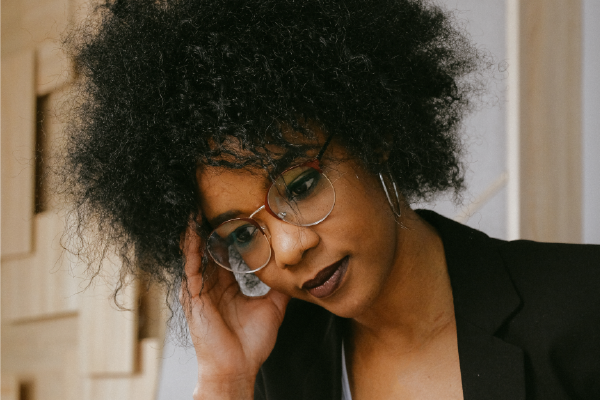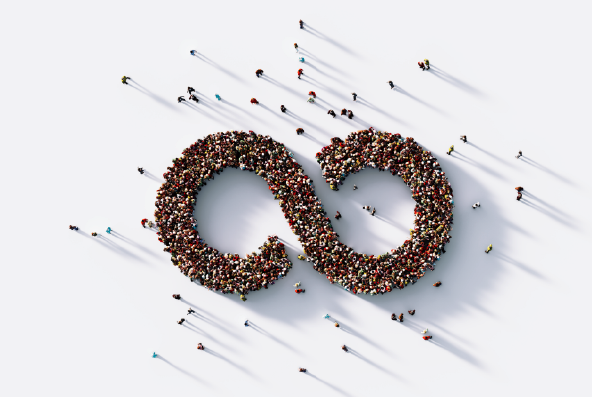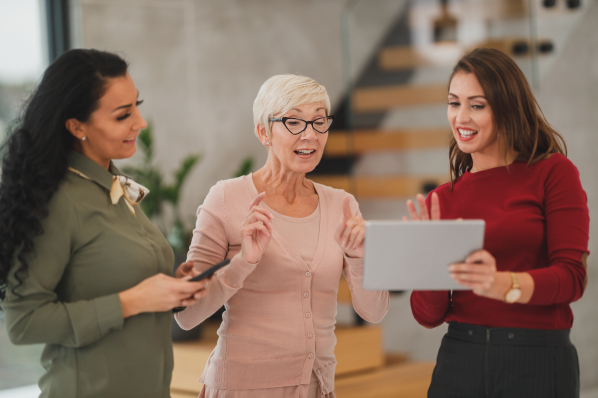We’re sharing the work of some key organizations and individuals along with resources as this year’s BIPOC Mental Health Month wraps up.
This post was written in collaboration with Gavin Alexander, Esq., Fellow at the Massachusetts Supreme Judicial Court Standing Committee on Lawyer Well-Being, who we thank for his contributions.
. . .
July is BIPOC Mental Health Month. As described by Mental Health America, BIPOC Mental Health Month, originally named and recognized as Bebe Moore Campbell National Minority Mental Health Awareness Month, “was created to bring awareness to the unique struggles that underrepresented groups face in regard to mental illness in the US. Bebe Moore Campbell was an American author, journalist, teacher, and mental health advocate who worked tirelessly to shed light on the mental health needs of the Black community and other underrepresented communities.”
Sadly, on a national level, surveys administered earlier in 2021 confirmed that while well-being in the legal profession as a whole has suffered, the well-being of BIPOC attorneys and attorneys early in their careers have been impacted the most. Here in Massachusetts, the SJC Standing Committee on Lawyer Well-Being’s recent reports, statements, and recommendations highlight the many factors that can negatively impact the mental health of the Commonwealth’s lawyers and law students from underrepresented and historically excluded groups, even in 2021. In recognition of both BIPOC Mental Health Month and the work being done to improve our profession, it is essential for us to highlight some key BIPOC advocates seeking to address the intersection of mental health and diversity, equity, and inclusion in the legal profession and beyond, and some resources for those who are interested in learning more about this area, and for those from affected populations who may be seeking help. Below please find just a small sampling of these important researchers, advocates, and resources.
Research/Advocacy
Rhonda V. Magee, Professor of Law at the University of San Francisco, is a nationally-recognized author and educator who has specifically focused her work on the intersection of well-being and DEI. Examples of her published work include her book, The Inner Work of Racial Justice: Healing Ourselves and Transforming Our Communities Through Mindfulness (TarcherPerigee, 2019), and her articles: “The Way of ColorInsight: Understanding Race and Law Effectively Using Mindfulness-Based ColorInsight Practices”, 8 Georgetown J. of Mod. Crit. Race Perspectives 251 (2016), “Teaching Mindfulness with Mindfulness of Diversity,” in McCown et al, Resources for Teaching Mindfulness: An International Handbook (Springer, 2017), and “Community Engaged Mindfulness and Social Justice: An Inquiry and Call to Action,” in Purser et al., Handbook of Mindfulness: Culture, Context and Social Engagement (2017).
Dr. David R. Williams, Professor of Public Health and chair of the Department of Social and Behavioral Sciences at the Harvard T.H. Chan School of Public Health, and Professor of African and African American Studies and Sociology at Harvard University, is an internationally recognized social scientist focused on social influences on health. According to ISI Essential Science Indicators, Dr. Williams was one of the Top 10 Most Cited Researchers in the Social Sciences during the decade 1995 to 20015, and in 2014, Thomson Reuters ranked him as one of the World’s Most Influential Scientific Minds based on his scientific articles published between 2002 and 2012. Over the past thirty years, Dr. Williams has published numerous works addressing racial components of stress and mental health, including “Stress and the Mental Health of Populations of Color: Advancing Our Understanding of Race-Related Stressors,” Journal of Health and Social Behavior, 59(4): 466-485 (2018); “Race, Socioeconomic Status, and Health: The Added Effects of Racism and Discrimination,” Annals of the New York Academy of Sciences, 896:173-188 (1999); and “Racial Differences in Physical and Mental Health: Socioeconomic Status, Stress, and Discrimination,” Journal of Health Psychology, 2(3):335-351 (1997) (with Yan Yu & James S. Jackson).
Paulette Brown, Senior Partner and Chief Diversity & Inclusion Officer of Locke Lord LLP, and Immediate Past President of the American Bar Association, formed the ABA’s Diversity & Inclusion 360 Commission in 2016, which sought to review and analyze the state of diversity and inclusion in the legal profession, the judicial system, and the ABA itself with the aim of formulating methods, policies, standards, and practices to best advance diversity and inclusion. Further, Brown has repeatedly led research and advocacy efforts seeking to address the specific intersectional burdens faced by women of color in the legal profession. Examples include “Visible Invisibility: Women of Color in Law Firms,” ABA (2006) (with Arin Reeves); and “Left Out and Left Behind: The Hurdles, Hassles, and Heartaches of Achieving Long-Term Legal Careers for Women of Color,” ABA (2020) (with Destiny Peery & Eileen Letts).
Sandra S. Yamate, Chief Executive Officer of the Institute for Inclusion in the Legal Profession, leads this non-profit organization dedicated to creating a more diverse and inclusive legal profession through its research and programs, and has previously served as the Executive Director of the Chicago Committee on Minorities in Large Law Firms and as the Director of the American Bar Association’s Commission on Racial and Ethnic Diversity in the Profession. Notably, the IILP recently launched The Empathy Project, which intends to create as safe a space as possible by which lawyers of color can share their racialized experiences as part of a larger group, with the goal of eventually publishing these stories as part of a book or series. As described on the IILP’s website, “[t]he idea behind The Empathy Project is that, during this time of unprecedented openness to listening and truly hearing about stories [of racialized experiences], our friends and colleagues who do not share the same race might begin to know us better and, by virtue of the knowledge, become the genuine allies and supporters we have, for so long, desired them to be.”
Resources
Mental Health America – Each year, MHA develops a public education campaign dedicated to addressing the mental health needs of BIPOC individuals and communities. The 2021 Toolkit’s theme is “Strength in Communities,” and highlights alternative mental health supports created by BIPOC and queer and trans BIPOC (QTBIPOC), for BIPOC and QTBIPOC. The 2018, 2019, and 2020 toolkits are also available.
National Alliance on Mental Illness – For 2021’s BIPOC Mental Health Month, NAMI is emphasizing the message of “You Are Not Alone,” using this time to focus on the healing value of connecting in safe ways, prioritizing mental health and acknowledging that it’s okay to not be okay through NAMI’s blog, personal stories, videos, digital toolkits, social media engagements and national events. NAMI is also producing an ongoing docuseries, “Strength Over Silence: Stories of Courage, Culture and Community, where mental health champions share their resilience and recovery, emphasizing the importance of culture and identity in the mental health movement. NAMI also hosts various completely free, peer-led support groups for any adult who has experienced symptoms of a mental health condition through the NAMI Connection Massachusetts NAMI Connection programs are listed here.
American Counseling Association – The ACA’s Color Me Brave series (available on Facebook Live) highlights issues related to communities, the workplace, and personal experiences that are central to mental health and well-being of BIPOC individuals. Further, the ACA highlights and concisely summarizes the critical barriers to mental health care for people in BIPOC communities (e.g., language and cultural differences, socioeconomic disparities, stigma and fear, legal or immigration status, and provider bias and incompetence).
American Bar Association Commission on Lawyer Assistance Programs – The ABA CoLAP provides various mental health resources to lawyers, judges, and law students throughout the country. Specifically, ABA CoLAP’s Diversity, Equity, and Inclusion Committee seeks to provide additional programming, resources, and advocacy aimed at highlighting the experiences of and supporting the well-being of attorneys from underrepresented populations.
Massachusetts SJC Standing Committee on Lawyer Well-Being – In addition to its advocacy highlighting the lived experiences of MA attorneys and law students from underrepresented and historically excluded populations, the Committee recently published a substantial list of “Public and/or Non-Profit Resources Addressing Diversity, Equity and Inclusion in the Massachusetts Legal Profession.” This list, last updated on June 17, 2021, highlights over 50 local and national organizations, public agencies, and individuals working to support the well-being of lawyers and law students from BIPOC and other marginalized communities. Further, Committee Fellow Gavin Alexander’s work specifically focuses on the intersection of well-being and diversity, equity, and inclusion in the Massachusetts legal profession.
Affinity Bar Associations – Connecting with members of affinity bar associations supporting BIPOC communities can provide valuable access to mentorship, networking, and even just friends who are willing to listen to concerns and provide support to lawyers and law students from the relevant populations. The affinity bar associations serving Massachusetts include Asian American Lawyers Association of Massachusetts, Hispanic National Bar Association Region I, Association of Hispanic Attorneys, Mass. Black Lawyers Association, Mass. Black Women Attorneys, Mass. LGBTQ Bar Association, New England Muslim Bar Association, South Asian Bar Association of Greater Boston, and Women’s Bar Association.
Mass General Hospital – MGH maintains a specific list of Mental Health Resources for BIPOC. This guide is a “living document,” and was last updated in September of 2020, and provides links to local resources, mental health provider directories, online support groups, self-guided virtual resources, and further resources for clinicians.
Lawyers Concerned for Lawyers, Massachusetts – As the profession works to better support the well-being of its members, both locally and nationally, individuals in the legal profession can find well-being and mental health support through lawyer assistance programs like ours here at LCL in Massachusetts. We’re sorry not to have any clinicians of color on staff at LCL MA (yet) but remind the community that our clinicians are here for you, can help you find the right match through referrals to outside therapists, and can offer more information about our Lawyer Assistance Fund to help cover fees when needed. Find more on scheduling a Free & Confidential consultation here. And we’ve compiled mental health resources here, including categories for members of various oppressed groups.
Self.com – On May 28, 2020, Rochaun Meadows-Fernandez published a list of “14 Organizations and People Working to Support BIPOC Mental Health During the Coronavirus Crisis.” This list includes resources ranging from large-scale advocacy organizations, to individual psychologists and grassroots organizations created for and specifically supporting individuals from specific BIPOC communities.
Your Primary Care Physician – If you need mental health support and don’t know where else to go, your primary care physician is often a great first person to contact. PCPs are often able to provide access to in-office social workers or referrals to psychologists and/or psychiatrists for long-term treatment.
Emergency Rooms / 911 – If you ever feel you are at risk of hurting yourself or others, hospital emergency rooms treat these types of mental health crises as genuine emergencies and will not turn you away.
About the Co-Authors
 GAVIN ALEXANDER, ESQ.
GAVIN ALEXANDER, ESQ.
Fellow, Massachusetts Supreme Judicial Court Standing Committee on Lawyer Well-Being
Gavin Alexander is an experienced and passionate advocate and thought leader in the areas of diversity, equity, and inclusion (DEI) and mental health in the legal profession and beyond. He currently serves as the full-time Fellow of the Massachusetts Supreme Judicial Court Standing Committee on Lawyer Well-Being, where his work focuses on the intersection of well-being and DEI. From 2013-2020, Gavin was an associate in the corporate department of Ropes & Gray LLP’s Boston office.
Gavin has served as a Co-chair of the Massachusetts LGBTQ Bar Association and as a board member of the National LGBT Bar Association. Presently, he serves on the ABA Commission on Lawyer Assistance Programs’ DEI Committee, the ABA Legal Opportunity Scholarship Fund Committee, the Institute for Lawyer Well-Being’s DEI Committee, the Boston Bar Association’s DEI Section Steering Committee, the Chief Justice Ralph D. Gants Access to Justice Fund Advisory Committee and the board of directors of The Leadership Brainery, a non-profit organized to help college student leaders from underrepresented, historically excluded, and first generation backgrounds prepare for and gain access to top graduate and professional schools.
Gavin was named one of the Best LGBT Attorneys Under 40 by the National LGBT Bar Association in 2017, selected as one of Massachusetts Lawyers Weekly’s 25 “Up & Coming Lawyers” for 2019, and featured on the Massachusetts Super Lawyers “Rising Stars” list for 2018-2020. In 2020, he was also named a Fellow of the American Bar Foundation for his outstanding dedication and leadership in the legal profession and in service to society. Most recently, Gavin shared his own personal experiences with depression in True Stories: A Lawyer With Depression’s Journey from Pain to Mental Health Advocacy.
Gavin studied Theater and Mathematics at Wesleyan University, and he graduated from Harvard Law School magna cum laude in 2012. After law school, Gavin spent a year as a law clerk for Chief Justice Ralph D. Gants at the Massachusetts Supreme Judicial Court.
Gavin can be reached at gavin@lawyerwellbeingma.org.
RACHEL CASPER joined LCL in 2010. As Director of Strategic Operations & Marketing, she coordinates the creation, curation, and dissemination of resources and services provided by LCL to help lawyers, law students, and other legal professionals in Massachusetts. She also coordinates the organization’s strategic planning and operations. Read more about Rachel here.
Related News:
Naomi Osaka: ‘It’s OK Not to Be OK.’ (Time, 2021)
What Simone Biles, Naomi Osaka Teach Us About Prioritizing Mental Health (NPR, 2021)
What Can Lawyers Learn from Simone Biles? (Minnesota LCL, 2021)
Additional Resources:
The expert-backed guide to managing your mental health in the face of discrimination
7 Virtual Mental Health Resources Supporting Black People Right Now
44 Mental Health Resources for Black People Trying to Survive in This Country
Black Mental Wellness offers 5 Steps for Grieving from Racial Trauma
The Unapologetic Guide to Black Mental Health: Navigate an Unequal System, Learn Tools for Emotional Wellness, and Get the Help You Deserve, by Rheeda Walker, PhD. — is now in our lending library, contact rachel@masslomap.org to reserve.
How I Take Up Space, from licensed therapist Nicole R. Cobb
More resources from Decolonizing Therapy
Black Mental Health Podcasts curated by Ayana Therapy:
- Between Sessions Podcast
- Ourselves Black Podcast
- Silent Symptoms Podcast
- Minding My Black Business Podcast
- Celeste The Therapist Podcast
Free & Confidential Consultations:
Lawyers, law students, and judges in Massachusetts can discuss concerns with a licensed therapist, law practice advisor, or both. Find more on scheduling here.




